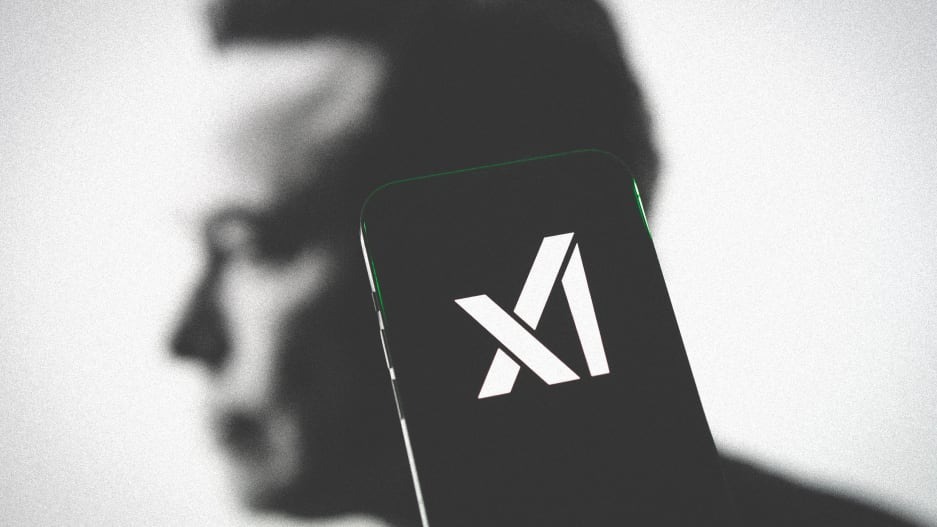- | 8:00 am
Elon Musk’s xAI wants to raise $1 billion. But can his AI company stand out?
Not everyone is confident that Musk’s plans to re-enter the AI world five years after he pulled funding from OpenAI will succeed.

Investor interest in generative AI startups remains high, with more than $21 billion plowed into companies in the first nine months of this year, according to Pitchbook. And xAI, the AI company founded by Elon Musk, wants to add significantly to that total.
xAI aims to raise up to $1 billion in equity investments, according to a filing with the Securities and Exchange Commission this week. That’s on top of the $135 million it’s already raised, per the filing; any new investor would have to put at least $2 million each into the company.
Though it’s less than a year old, xAI has already gained support from Musk’s most ardent fans on X, the social media site formerly known as Twitter that he bought in October 2022 for $44 billion. “This is Musk aggressively going after the AI gold rush,” says Dan Ives, managing director and senior equity analyst at Wedbush Securities.
Musk has previous experience within the world of AI: He was a founding member of OpenAI, bankrolling the company with a promised $1 billion of investment, but withdrew his funding in 2018. Officially, OpenAI said Musk’s exit was due to a potential conflict of interest with Tesla, his electric car company that was developing self-driving AI systems. But reports suggest it was over discomfort about the increasingly fast pace by which OpenAI was developing artificial intelligence, and Musk’s fears that it could lead to humanity’s harm.
However, not everyone is confident that Musk’s plans to re-enter the AI world five years after he pulled funding from OpenAI will succeed. Nor that all investors will be keen to buy in.
“Firstly, we have Musk’s track record to look at,” says Catherine Flick, professor of ethics and games technology at Staffordshire University. “He’s obviously not quite worn out the welcome for his fans or people who want to take a very large risk on his operations. I suppose they’re hoping it will be less Twitter, more Tesla in terms of his historical attempts to build businesses.”
Flick also suggests that starry-eyed investors might want to think twice before buying into a company that’s stated goal is “to understand the true nature of the universe.”
“Deep learning models can never actually understand anything, just model the best fit of predictions,” she says. “They are leaning into the hype around the fantasy of AGI, which is a complete red herring in terms of the actual capabilities of the company.”
Musk, for his part, has attended the U.K. AI Safety Summit in early November where he outlined to a group including Prime Minister Rishi Sunak a vision of the future where AI could supplant humans if not cautiously and carefully developed. Mike Katell, an ethics fellow at the Alan Turing Institute, says that “Musk is carrying a torch for the discredited notion that AI understands anything at all,” something that remains the focus of contentious debate, often at the expense of more catastrophic, eye-catching headlines.
Both Katell and Flick also take issue with xAI’s use of posts on X as training data, and fear it could embed hateful and bigoted speech into its flagship chatbot, Grok. “The real risk it runs is that by having direct access to the Twitter firehose without filters, it will likely replicate Microsoft’s early attempt at a live-learning chatbot, Tay, which quickly started repeating antisemitic and racist speech until it was shut down,” says Flick. (Musk did not immediately respond to Fast Company’s request to comment.)
Nevertheless, despite the controversies, Musk has a good recent history in being able to garner funding—even if he has managed to wipe half the value from X in his 14 months of ownership. In August, Musk’s brain chip startup, Neuralink, raised $280 million in a funding round led by the Founders Fund, created by Peter Thiel. That haul came despite whistleblowers telling Reuters that the company was killing more animals than necessary by rushing through its experiments too hastily.
In xAI’s case, it remains uncertain what exactly investors are buying into. “Ultimately if it remains Elon’s personal toy then it’ll just be a very expensive one,” says Flick. “If tools like Grok are released more into the wild, they will appeal to those who are the ones delighting in the vibe of new Twitter. But is that enough of an audience to sustain a billion-dollar investment?”







































